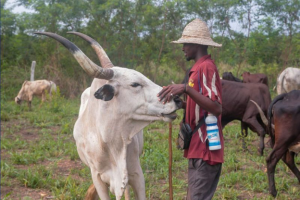BY MEHARI BEYENE
Empowering youngsters in innovational works is crucial to promote the advancement of the continent, particularly, Ethiopia. They have to ready themselves to acquire basic techniques in Science, Technology and Innovation, artificial intelligence and robotics.
In this regard, the just-ended third African Regional Science, Technology and Innovation Forum, which was held in the Congolese capital and online, saw several innovative young Africans, among 200 who took part in a bootcamp, many have managed to create software projects and print objects in 3D, so disclosed United Nations Economic Commission for Africa.
They convinced that young Africans were more interested in social sciences, the United Nations Economic Commission for Africa, UNESCO, and other partners initiated the bootcamp to arouse interest in scientific and technological careers among young people in the continent.
It is a question of imparting practical knowledge on youths, so as to let them easily find professional niches in the future, according to the Executive Secretary of the United Nations Economic Commission for Africa , Vera Songwe.
“The science, technology and innovation sessions remain important for girls and boys, because if they are the ones who would find an effective cure for malaria tomorrow, it would be a relief for the whole continent,” she said.
Songwe heartened exchanges between knowledge institutions and African universities to mobilize the entire continent around developing science, technology and innovation.
During the four-day bootcamp, young innovators, mainly from African high schools and universities, linked theory to practice. After the training, many succeeded in creating software and printing objects in 3D.
“I am now able to create big data software that allows the management of telephone, banking, Internet and other data,” said Claude Candide Moukala, a student in Master 2 mathematics.
Training young people in STI is also seen as essential by Salah Khaled, who heads the Central Africa Office of UNESCO.
“The bootcamp brings together young people to give them pre-requisites. The ultimate idea is to generate enthusiasm among these young people for scientific professions so that they become ambassadors of STI in their respective environments,” he noted.
The Congolese government hailed the efforts of partners, in particular ECA and UNESCO for their involvement in science, technology and innovation training for young people who represent the future of the African continent.
For Martin Parfait Aimé Coussoud Mavoungou, Congolese Minister of Scientific Research and Technological Innovation, “science, technology and innovation will play a decisive role in creating conditions conducive to the rapid transition of our countries to the status of emerging economies, and constitutes a driving force for achieving the sustainable development goals.”
“Higher education institutions and public and private research organizations are essential to reach the stage of innovation required to enhance productivity, the development of value chains and competitiveness,” he said.
Coussoud Mavoungou recognized the private sector as “a key partner in making science, technology and innovation an effective and sustainable instrument for the development of Africa”.
The Forum aimed at ensuring the continent’s sustainable development goals and Africa’s Agenda 2063.
In addition to this, Africa seems in the right track to explore artificial intelligence. So, Africa could expand its economy by a staggering 1.5 trillion dollars USD, by capturing just 10 percent of the speedily growing artificial intelligence market, set to reach 15.7 trillion USD by 2030.
In this regard, Vera Songwe, United Nations Under-Secretary-General and Executive Secretary of the Economic Commission for Africa (ECA), made the argument.
She was addressing several ministers and other participants at the third Africa Regional Science, Technology and Innovation Forum, through the Director of the Technology, Climate Change and Natural Resource Development Division of United Nations Economic Commission for Africa, Jean Paul
“Artificial intelligence growth can help in creating additional high value and decent jobs, diminish poverty, increase the productivity of firms, preserve the environment and foster better living conditions,” she added.
“Research has shown that artificial intelligence has the potential to solve some of the most pressing challenges facing Africa and drive sustainable development in agriculture, health, infrastructure, financial and public services and climate change,” Songwe maintained.
United Nations Economic Commission for Africa’s Executive Secretary said the Republic of Congo, which is hosting the Forum in situ in Brazzaville and online, finds itself in a special subregion, blessed with natural capital, such as huge forests. However, these forests have been disproportionately depleted, in comparison to those of other parts of the world, partly due to climate change. Artificial intelligence, she argued, could enhance already existing technologies which have been used to tackle COVID-19, to solve such climate change problems.
The imminent creation of an African Artificial Intelligence Research Centre in Brazzaville, Congo, with support from United Nations Economic Commission for Africa, could give momentum to this new movement in Africa.
Léon Juste Ibombo, Congo’s Minister of Posts, Telecommunications and Digital Economy, praised United Nations Economic Commission for Africa for its background work towards establishing the Centre, which, he said, “demonstrates Africa is innovative and uninhibited.”
The Centre is being designed to improve the current landscape of Artificial Intelligence research in Congo and in Africa in general, to orient the use of AI to foster economic and social development, while promoting close collaboration between academia and the industrial sector in AI and robotics across Africa.
According to Shamila Nair-Bedouelle, UNESCO’s Assistant Director-General for Natural Sciences, it is such investments and strong partnerships for capacity building in science, technology and innovation which would accelerate the implementation of the SDG in Africa.
“Innovation cannot be decreed; it is planned and designed!” enthused Arlette Soudan-Nonault, Minister of Tourism and Environment of the Congo.
“Africa therefore has no excuse to be absent from the big rendezvous of innovation, which defines the 21st century,” she warned, adding that university dons, economists and, industrialists must come together to lead today’s learners into this exciting world.
In such a world, “the science, technology and innovation that we teach will determine what our continent will become,” said by Amon Murwira, Minister of Higher and Tertiary Education, Innovation, Science and Technology Development, Zimbabwe.
“Our industry must emerge from our classrooms and laboratories,” supported by the correct educational system design and framework which no longer teaches students about “where they get things but how to make things,” he insisted, as he cited his country’s ‘Education 5.0’ philosophy. The philosophy is sequenced on teaching, research, community outreach and innovation as well as industrialization.
It is therefore up to Africa to take up this challenge of rapidly improving investments and attention to science, technology and innovation, hinged upon its endowments in nature and biodiversity. “Our surest guarantees” said Parfait Aimé Coussoud Mavoungou, Minister of Scientific Research and Technological Innovation of Congo, and incoming Chair of the Forum.
It has also featured an innovation bootcamp for young Africans, both in person in Brazzaville and connecting from across the continent and affording them an opportunity to develop projects using skills they have learnt in relation to robotics and AI, as well as access to 3D printing technologies.
It would have identified potential mechanisms and measures that African countries could deploy to leverage science, technology and innovations for achieving the Sustainable Development Goals and the Aspirations of Agenda 2063.
Therefore, Ethiopia should take such events as an opportunity to realize innovational works as well as to harness youngsters in the duty of innovational works, such as in artificial intelligence and building software applications.
The Ethiopian Herald 12 March 2021



